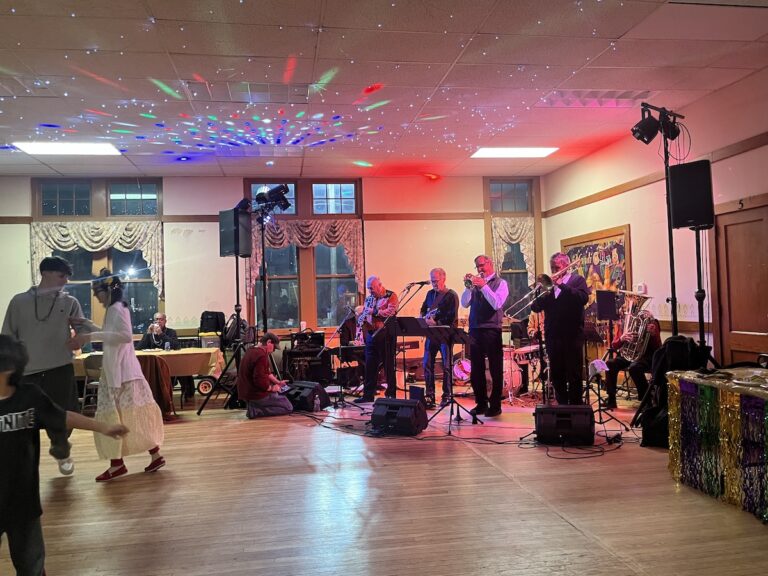Students respond to Kenyan election and violent aftermath
Just days after returning home to Kenya from the university for winter break, William Ndugire ’10 and Sam Maritim ’10 watched as a corrupted election process pushed their nation into political instability and ethnic violence.
“I was sitting on the couch with my family, watching the votes coming in, when all of a sudden, Kibaki was declared the winner,” Ndugire said. “Raila [Odinga, the opposition leader] had been leading by a million votes.”
Before the violent outbreak that followed the election, Kenya had boasted a decade of a flourishing economy, an admirable tourist industry and general peace. The election—which pitted incumbent leader Mwai Kibaki against the opposition, Odinga—was also anticipated as a political leap for the country, which was ruled by a near-dictatorship only 10 years ago. For the duration of the campaign process, Odinga held a strong lead in election polls, and he was the widely presumed winner-to-be.
But when election day rolled around on Dec. 27, it was Kibaki who claimed the victory in what some hypothesize was a rigged election.
In the uncharacteristic burst of violence that followed the results, more than 1,000 Kenyans were killed and hundreds of thousands more were driven from their homes.
Now, peace has finally returned to Kenya. Last Friday, the rival leaders signed a power-sharing agreement that, among other things, created a new prime minister position for Odinga and divided key cabinet positions between the two leaders’ parties.
Ndugire and Maritim explained, however, that the road to these peace agreements has been a long and arduous one. Ndugire noted that, although Odinga had been in the lead in pre-election poll numbers, the election was not nearly decided yet.
“There was no doubt that the election was going to be a close one,” Ndugire said. “Young people were voting for change, for Raila. It was never going to be a landslide for either candidate. Maybe there would be a difference of 200,000 or 300,000 votes.”
Maritim explained that even poll numbers and predicted election results were difficult to come upon in the times preceding the election.
“The press was told not to report the numbers from the tallying stations, and to rely on what the election commission in Nairobi said,” Maritim said. “All of a sudden, they were reporting that Kibaki had won 99 percent of the votes in some precincts.”
With an election that indicated voter fraud, it became apparent that violence and unrest would erupt.
“I immediately knew there would be conflict in Kisumu,” Ndugire said, referring to a port city in western Kenya, often a flashpoint for ethnic violence and the hometown of Odinga.
And Ndugire was right—ethnic violence erupted there and all over the country.
“At first it seemed to be random,” Ndugire said. “But then, after a week, it became much more systematic. It seemed like there was a political hand behind it.”
Ndugire explained that though he and his family are in the ethnic minority where they live—in the small agricultural town of Kitale—he still felt relatively safe.
“But, the possibility is still there,” he said. “Even though I’ve lived there my whole life, you still live with a little bit of fear.”
Maritim, however, noted that though his family may not have been affected, neighbors and friends certainly were.
“My family wasn’t affected,” Maritim said. “But my friends were told to leave. They were chased out by people who weren’t even from my town. It seems like people were lashing out.”
Ndugire explained that this anger is complex, as it stems from both political and social tensions.
“Putting a dividing line between the political process and ethnic violence is difficult,” Ndugire said. “Lots of people are upset and betrayed by what has happened.”
Maritim echoed Ndugire’s sentiment.
“It’s just so disappointing,” he said. “I don’t think this was ethnically motivated.”
More than anything, Maritim and Ndugire noted disappointment at how brazen the corruption of the election was.
“Kibaki was elected in 2002 to fight corruption,” Ndugire said. “At least before, the corruption wasn’t so blatant. He has economically sound policies, but this fraud is so obvious.”
Alex Mumbauer ’08 studied abroad in Kenya last spring and has remained in close contact with many of the people she lived with and studied with there.
“My friends have told me that they feel like nothing ever changes,” she said. “The fact of the matter is it hardly makes a difference who’s in office, they just use their power to help their friends out.”
Ndugire and Maritim both shared this outlook.
“An ideal situation to the problem?” Ndugire laughed. “We should kill all the politicians.”
“At least the old ones,” Maritim quickly added. “Then we could get some fresh ones.”
Joke solutions aside, Ndugire explained that, although some peace agreements have been reached, the conflict is far from over.
“It will take time for the tensions to recede, for people to feel comfortable again,” Ndugire said. “Kibaki and Raila making up is a relief. I hope the legislature part goes smoothly, and neither side does anything stupid. But this was the easy bit. Now, with 0.3 million displaced, it’s all about where they go now. Again, the issue of truth, justice and reconciliation, like was done in South Africa, has been floated. Now, we wait, and if religious, we pray.”







Leave a Reply